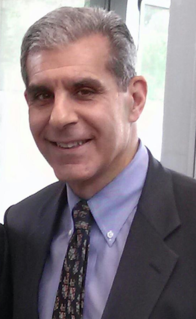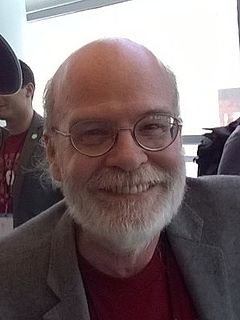A Quote by Eric Topol
A lot of the diagnosis and monitoring functions will be done through little devices - smartphones - by the patient with computer assistance. So it's a real big change in the model of how we render healthcare.
Related Quotes
If I say look unless you change your leaders I will not give you any aid, you are likely to have people who say: "To the hell with you, we will struggle on the way but we will do it". Therefore what I am saying is - and I do not whether it is coming through clearly - there has to be a lot of care exercised by the people who are in the position to give or withhold assistance: if they start throwing their weight around, using extreme language, seeming to order other nations to do their bidding, then there will not be a good result, it will not be done.
A lot of people will say, "what's Facebook's business model?" I always find that a kind of funny question. Our business model is out there, which is: we monetize largely through advertising and a little bit through the gift revenue, the virtual gifts we have on our site. I think those continue to be the most promising avenues going forward.
In the name of economy a thousand wasteful devices would be invented; and in the name of efficiency new forms of mechanical time-wasting would be devised: both processes gained speed through the nineteenth century and have come close to the limit of extravagant futility in our own time. But labor-saving devices could only achieve their end-that of freeing mankind for higher functions-if the standard of living remained stable. The dogma of increasing wants nullified every real economy and set the community in a collective squirrel-cage.
Code is not like other how-computers-work books. It doesn't have big color illustrations of disk drives with arrows showing how the data sweeps into the computer. Code has no drawings of trains carrying a cargo of zeros and ones. Metaphors and similes are wonderful literary devices but they do nothing but obscure the beauty of technology.
The other kind of market like technology is healthcare. Nobody likes the healthcare industry, but on the other hand, everyone wants to live longer. The way I look at it, there's going to be tremendous pressure with healthcare as a percentage of GDP rising with new technology, an aging population, and a business model that basically keeps people alive longer to consume more healthcare products.
When Colin Powell showed up as Secretary of State in 2001, most State Department employees still didn't even have computers on their desks. When I got there they were not mostly permitted to have handheld devices. I mean, so you're thinking how do we operate in this new environment dominated by technology, globalizing forces? We have to change, and I can't expect people to change if I don't try to model it and lead it.
I started a company called Pixel Qi and the principal of as we're going, smartphones were happening, but as we go forward, the predictions were five devices per person. Do you want to charge each one of those every night to try to get them on a full charge when you're walking around? Smartphones don't even last a day without a recharge now.





































